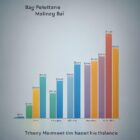11 Tips for Securing Healthcare Enrollment Financial Aid

Are you feeling overwhelmed by the cost of healthcare enrollment? Don’t worry, we’ve got you covered.
In this article, we’ll provide you with 11 essential tips to secure financial aid for your healthcare needs.
From determining your eligibility to researching available programs, we’ll guide you through the application process step by step.
With our help, you’ll be able to navigate the world of healthcare enrollment with confidence and ease.
Key Takeaways
- Assess income and household size to determine eligibility for financial aid programs.
- Gather all necessary documents for accurate income calculation and to meet application requirements.
- Be aware of submission deadlines and ensure timely completion and submission of the application.
- Follow up on the application status and explore state-specific healthcare programs for additional financial aid options.
Determine Your Eligibility
To determine your eligibility for healthcare enrollment financial aid, start by assessing your income and household size.
The first step in this process is to gather all the necessary documents that will help you accurately calculate your income. This includes pay stubs, tax returns, and any other relevant financial information.
Once you have a clear picture of your income, you can move on to determining your household size. This includes everyone who lives with you and depends on your income for support, such as your spouse, children, or other dependents.
It’s important to note that eligibility for financial aid is based on your household income and size. If your income falls within the specified range and you have a qualifying household size, you may be eligible for financial assistance. This assistance can come in the form of subsidies or tax credits, which can significantly reduce the cost of healthcare enrollment.
Research Available Financial Aid Programs
Explore different financial aid programs available for healthcare enrollment.
When it comes to securing financial aid for healthcare enrollment, it’s important to research and understand the various programs available to you. Here are three subcategories of financial aid programs to consider:
- Government Programs: Research federal and state government programs that provide financial assistance for healthcare enrollment. These programs may include Medicaid, the Children’s Health Insurance Program (CHIP), and subsidies offered through the Affordable Care Act. Determine your eligibility and understand the requirements and benefits of each program.
- Institutional Aid: Many educational institutions offer their own financial aid programs for healthcare enrollment. Check with the school you’re interested in attending to see if they offer any scholarships, grants, or work-study opportunities specifically for healthcare students. Research the application process and deadlines for these programs.
- Private Scholarships and Grants: Explore private organizations, foundations, and companies that offer scholarships and grants for healthcare enrollment. These opportunities may be based on factors such as academic achievement, financial need, or specific demographics. Look for scholarships and grants that align with your background, interests, or career goals.
By thoroughly researching the available financial aid programs, you can identify opportunities that may help alleviate the financial burden of healthcare enrollment. Remember to carefully review the requirements and deadlines for each program and apply for as many as you qualify for.
Good luck in your search for financial assistance!
Understand the Application Process
To successfully navigate the application process for healthcare enrollment financial aid, there are a few key points you need to understand.
Firstly, make sure you have all the required documentation ready, such as proof of income and identification.
Additionally, familiarize yourself with the eligibility criteria for the aid program you’re applying to, and ensure you meet all the necessary requirements.
Lastly, be aware of the deadlines for submission, as missing these could result in your application being rejected.
Required Documentation for Application
Gather the necessary documents to complete your healthcare enrollment financial aid application. To ensure a smooth and efficient application process, it’s important to have all the required documentation ready. Here are the documents you’ll need to provide:
- Personal identification: This includes a valid ID such as a driver’s license, passport, or Social Security card.
- Proof of income: You’ll need to submit documents that show your income, such as pay stubs, tax returns, or bank statements.
- Proof of residency: This can be in the form of a utility bill, lease agreement, or any official document that verifies your address.
- Proof of citizenship or immigration status: If you’re a U.S. citizen, you’ll need to provide a birth certificate or passport. Non-citizens will need to provide their immigration documents.
Having these documents handy will help ensure a smooth and timely processing of your healthcare enrollment financial aid application.
Eligibility Criteria for Aid
To understand the application process for healthcare enrollment financial aid, it’s important to familiarize yourself with the eligibility criteria. Knowing the requirements will help you determine if you qualify for financial assistance. The eligibility criteria may vary depending on the specific aid program, but common factors include income level, household size, and immigration status.
It’s crucial to gather all the necessary documentation that supports your eligibility, such as tax returns, pay stubs, and proof of residency. Additionally, be aware of any deadlines for submitting your application and make sure to complete it accurately and honestly.
Deadlines for Submission
Make sure you understand the deadlines for submitting your application and follow the application process carefully. Missing the deadline could result in your application being rejected or delayed, which may prevent you from receiving the financial aid you need for healthcare enrollment.
Here are some important points to keep in mind:
- Know the specific deadline for submitting your application. Different financial aid programs may have different deadlines, so make sure you’re aware of the exact date and time by which your application must be submitted.
- Allow yourself plenty of time to complete your application. Gathering all the necessary documents and information can take time, so it’s important to start the process early to avoid any last-minute stress.
- Be aware of any additional requirements or steps in the application process. Some financial aid programs may require additional forms, documentation, or interviews, so be sure to read through all instructions carefully and follow them accordingly.
Gather Necessary Documentation
Now that you understand the application process, it’s time to gather the necessary documentation. To make the process easier, start by creating a required document checklist.
This will help ensure that you have all the necessary paperwork in one place, saving you time and reducing stress. By streamlining the documentation process, you can focus on completing your healthcare enrollment financial aid application with confidence.
Required Document Checklist
Gather all necessary documentation to ensure a smooth healthcare enrollment process. Having the right documents ready will help expedite your application and prevent any delays. Here is a checklist of the required documents you may need:
- Identification documents: Gather your valid driver’s license, passport, or social security card.
- Proof of income: Collect recent pay stubs, tax returns, or bank statements to verify your income.
- Proof of residency: Provide a utility bill or lease agreement that shows your current address.
- Proof of citizenship or immigration status: Have your birth certificate, naturalization certificate, or immigration documents handy.
Streamlining Documentation Process
Having all your necessary documentation organized and readily available is essential for streamlining the healthcare enrollment process. Before starting your application, take the time to gather all the required documents. This includes identification proof, income statements, tax returns, and any other relevant paperwork. By having everything in one place, you can avoid delays and frustration during the application process.
Start by creating a checklist of all the documents you need. Check each item off as you gather them, ensuring nothing is missed. Store them in a secure folder or file, making it easy to access when needed. Keep copies of important documents, both physical and digital, for added security.
Being prepared with all the necessary documentation not only speeds up the enrollment process but also ensures accuracy and completeness. Once you have gathered all the required documents, you’ll be ready to move on to the next step: completing and submitting your application.
With your documents in order, you can confidently proceed to the next section and complete your healthcare enrollment application.
Complete and Submit Your Application
To ensure a smooth process, gather all necessary documents and promptly complete your healthcare enrollment application. This step is crucial in securing financial aid for your healthcare needs.
Here are a few tips to help you navigate through the application process:
- Review the application requirements: Familiarize yourself with the application instructions and ensure you have all the necessary documents. This may include proof of income, identification, and other supporting documentation.
- Double-check your information: Take the time to carefully fill out the application, providing accurate and up-to-date information. Mistakes or missing information can delay the processing of your application.
- Seek assistance if needed: If you have any questions or concerns about the application, don’t hesitate to reach out for assistance. Many healthcare enrollment programs offer support services to help applicants complete their applications correctly.
Submitting your application on time is crucial to avoid missing out on financial aid opportunities. Keep track of any deadlines and submit your application as soon as possible to ensure it’s processed in a timely manner.
Follow up on Your Application Status
Check the status of your application to stay informed about the progress of your healthcare enrollment financial aid. It’s crucial to follow up on your application to ensure that everything is on track and to address any issues or concerns that may arise. Waiting for a response can be nerve-wracking, but taking the initiative to check your application status will give you peace of mind.
To begin, visit the website or contact the organization responsible for processing your application. They’ll be able to provide you with the most up-to-date information regarding the status of your application. Be prepared to provide your application number or any other relevant information to help them locate your file quickly.
If you find that your application is still under review, don’t panic. It’s normal for the process to take some time, especially during periods of high demand. However, if you notice any discrepancies or if your application has been pending for an extended period, don’t hesitate to reach out to the organization for clarification.
By staying proactive and following up on your application status, you can ensure that your healthcare enrollment financial aid is progressing smoothly.
In the next section, we’ll explore state-specific healthcare programs that may provide additional financial assistance for your healthcare needs.
Explore State-Specific Healthcare Programs
To uncover additional financial assistance for your healthcare needs, take a closer look at state-specific healthcare programs. These programs are designed to provide support and resources to individuals who may not qualify for federal assistance or need additional aid. Here are three key reasons why exploring state-specific healthcare programs is a smart move:
- Tailored to Your State: Each state has its own unique healthcare programs and initiatives. By exploring state-specific programs, you can tap into resources that are specifically designed to address the healthcare needs of your community. These programs may offer financial assistance, discounted healthcare services, or specialized healthcare programs that cater to your state’s specific needs.
- Additional Financial Aid: State-specific healthcare programs often offer additional financial aid options that can help alleviate the burden of healthcare costs. These programs may provide subsidies, grants, or sliding-scale payment options based on your income and family size. By taking advantage of these programs, you can receive the financial support you need to access quality healthcare without breaking the bank.
- Access to Local Resources: State-specific healthcare programs often collaborate with local organizations and healthcare providers to ensure that individuals have access to a wide range of healthcare services. These programs may connect you with community health centers, low-cost clinics, or specialized healthcare providers who can offer discounted services. By utilizing these resources, you can receive the healthcare you need at a price you can afford.
Consider Medicaid and CHIP Options
Consider utilizing the available Medicaid and CHIP options to secure financial aid for your healthcare enrollment. Medicaid and the Children’s Health Insurance Program (CHIP) are government programs designed to provide affordable healthcare coverage for low-income individuals and families. These programs can be a valuable resource for those in need of financial assistance to cover their healthcare expenses.
Here is a comparison of Medicaid and CHIP:
| Medicaid | CHIP | |
|---|---|---|
| Eligibility | Based on income and other factors | Based on income and age |
| Coverage | Comprehensive coverage for adults and children | Coverage for children |
| Cost | Low or no cost for eligible individuals | Low-cost premiums and out-of-pocket costs |
| Benefits | Varies by state, but typically includes doctor visits, hospital care, prescription drugs, and more | Varies by state, but typically includes preventive care, dental and vision services, and more |
To determine if you qualify for Medicaid or CHIP, you can visit your state’s healthcare marketplace or contact your local Medicaid or CHIP office. They will guide you through the application process and provide you with the necessary information to secure financial aid for your healthcare enrollment. Remember, taking advantage of these options can help alleviate the burden of healthcare costs and ensure that you and your family have access to the care you need.
Look Into Subsidies and Tax Credits
If you’re eligible for Medicaid or CHIP, you may also want to look into subsidies and tax credits to further assist with your healthcare enrollment costs. These financial assistance programs can help reduce the burden of healthcare expenses and make it more affordable for you and your family to get the coverage you need.
Here are a few key points to keep in mind as you explore these options:
- Subsidies: Subsidies are financial assistance provided by the government to help lower-income individuals and families pay for healthcare coverage. These subsidies can help reduce the cost of monthly premiums and out-of-pocket expenses, making healthcare more affordable. To determine if you qualify for subsidies, you’ll need to provide information about your income and household size when applying for healthcare coverage.
- Tax Credits: Tax credits are another form of financial assistance that can help offset the cost of healthcare coverage. These credits are based on your income and can be applied when you file your taxes. They can help reduce the amount you owe in taxes or increase your tax refund, providing additional funds that can be used towards healthcare expenses.
- Eligibility Requirements: The eligibility requirements for subsidies and tax credits vary depending on factors such as income, household size, and the state you live in. It’s important to carefully review the guidelines and requirements to determine if you qualify for these programs.
Seek Assistance From Healthcare Navigators or Enrollment Counselors
You can receive valuable guidance and support by seeking assistance from healthcare navigators or enrollment counselors. These professionals are trained to help individuals navigate the complex world of healthcare enrollment and understand their options for financial aid. Whether you’re looking for information about available subsidies and tax credits or need help understanding the enrollment process, healthcare navigators and enrollment counselors can provide the assistance you need.
One of the benefits of working with these experts is their extensive knowledge of the healthcare system. They can help you understand the different plans available to you, including any changes in coverage or benefits. They can also assist you in determining your eligibility for financial aid programs and help you complete the necessary paperwork.
In addition to their expertise, healthcare navigators and enrollment counselors can provide you with emotional support throughout the enrollment process. The healthcare system can be overwhelming, and having someone by your side to answer your questions and offer guidance can make a significant difference.
Stay Informed About Changes in Healthcare Policies and Regulations
Staying informed about changes in healthcare policies and regulations is crucial for securing financial aid during healthcare enrollment. By keeping yourself updated on policy updates and changes, you can ensure that you’re in compliance with all the necessary regulations.
This won’t only help you navigate the enrollment process more effectively but also increase your chances of receiving the financial assistance you need.
Policy Update Notifications
To stay informed about changes in healthcare policies and regulations, regularly check for updates from relevant government agencies and healthcare organizations. Staying up-to-date on policy updates is crucial to ensure that you’re aware of any changes that may impact your healthcare coverage or financial aid eligibility.
Here are a few ways you can stay informed:
- Subscribe to email newsletters or notification services provided by government agencies and healthcare organizations.
- Follow their social media accounts for real-time updates on policy changes.
- Visit their websites regularly to look for any news or announcements.
By actively seeking out policy update notifications, you can stay informed about any changes that may affect your healthcare enrollment and financial aid options. Being aware of these updates will help you navigate the healthcare system more effectively and make informed decisions.
In the next section, we’ll discuss the importance of compliance with regulations.
Compliance With Regulations
Stay informed about changes in healthcare policies and regulations by regularly checking for updates from relevant government agencies and healthcare organizations. Staying up-to-date with the latest changes is crucial to ensure compliance with the ever-evolving regulations in the healthcare industry.
These regulations are designed to protect patients, improve the quality of care, and promote transparency. By staying informed, you can adapt your healthcare enrollment process to any new requirements or guidelines that may be introduced.
Additionally, being aware of changes in healthcare policies allows you to make informed decisions when selecting healthcare plans and financial aid options. Remember to not only rely on official government websites but also consult trustworthy healthcare organizations for updates.
Frequently Asked Questions
How Long Does It Typically Take to Receive a Decision on a Healthcare Enrollment Financial Aid Application?
It usually takes a few weeks to hear back about your healthcare enrollment financial aid application. The decision-making process can vary, but once it’s made, you’ll be notified of the outcome.
Can I Apply for Financial Aid if I Am Already Enrolled in a Healthcare Plan?
Yes, you can apply for financial aid even if you’re already enrolled in a healthcare plan. The application process might vary, but it’s worth exploring your options to potentially receive additional assistance.
Are There Any Specific Income Requirements for Healthcare Enrollment Financial Aid?
You may be wondering if there are any income requirements for healthcare enrollment financial aid. Well, the specific requirements vary depending on your state and the type of aid you’re applying for.
Can I Still Receive Financial Aid if I Have a Pre-Existing Medical Condition?
Yes, you can still receive financial aid for healthcare enrollment even if you have a pre-existing medical condition. The aid is not dependent on your medical history, but rather on your income eligibility.
What Options Are Available for Healthcare Enrollment Financial Aid if I Am Self-Employed or Unemployed?
If you’re self-employed or unemployed, you’re not out of options for healthcare enrollment financial aid. There are programs like Medicaid and the Affordable Care Act that can help you get the coverage you need.



